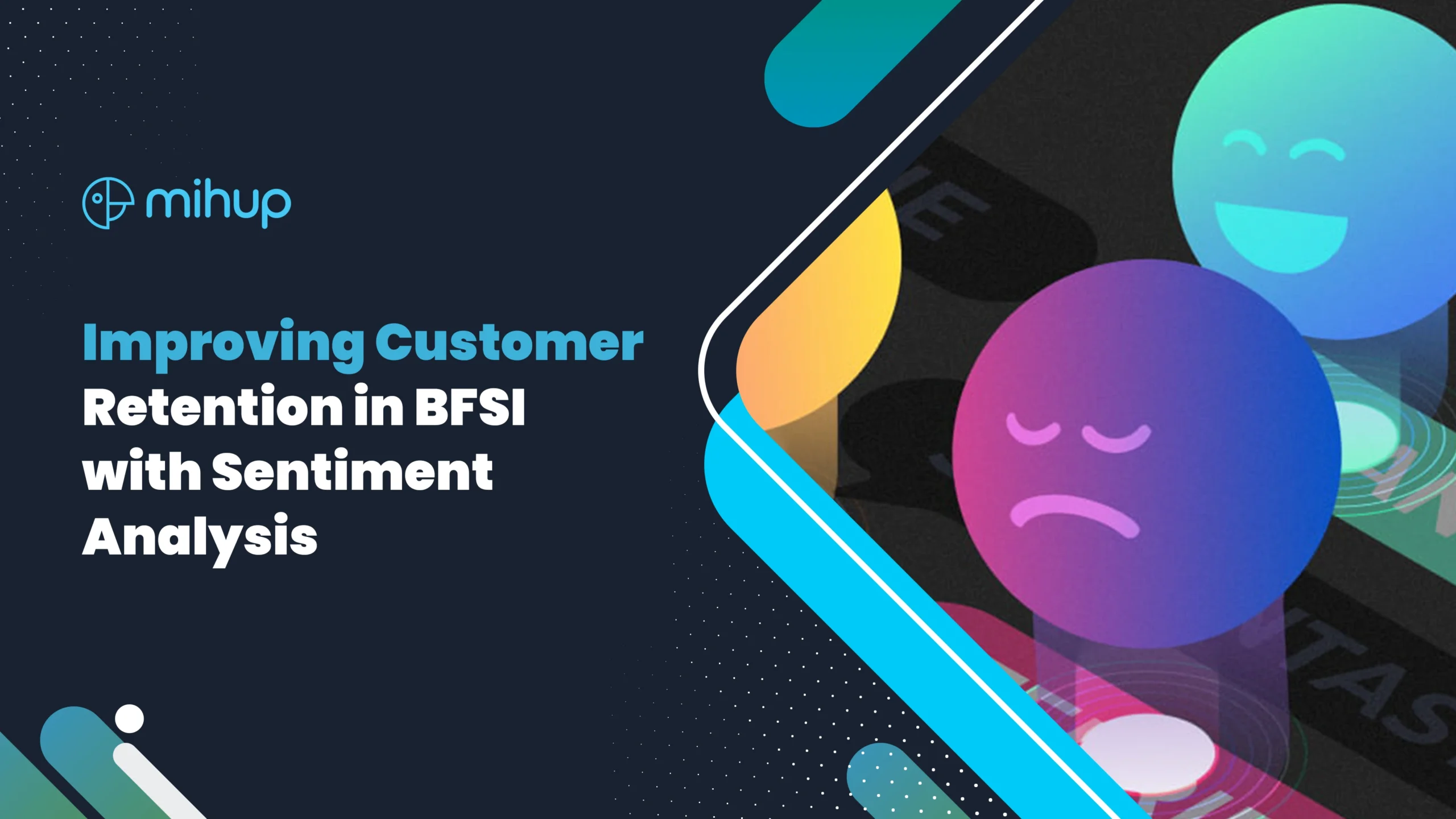Customer retention is a critical metric in the highly competitive Banking, Financial Services, and Insurance (BFSI) sector. Today it’s important for businesses that prioritize keeping their customers engaged and satisfied to establish long-term loyalty, enhance revenue streams, and gain a competitive edge. In this digital age, AI-powered tools like sentiment analysis are revolutionizing the way BFSI organizations understand and improve their customer experiences.
Here we will explore how sentiment analysis can drive customer retention in BFSI:
Understanding AI in Customer Retention
AI is transforming customer engagement strategies by analyzing data, predicting behaviors, and enabling personalized interactions. By using AI-driven insights, businesses in the BFSI sector can identify customer pain points, address grievances, and create tailored experiences that foster loyalty.
AI’s capability to process vast volumes of customer data ensures that retention strategies are precise and actionable, helping businesses stay ahead in an increasingly dynamic marketplace.
How important is Customer Retention in BFSI?
Customer retention is pivotal in BFSI for several reasons:
- Cost-efficiency: Retaining customers is significantly cheaper than acquiring new ones for an organization.
- Lifetime value: Long-term customers tend to use multiple services, increasing the overall profitability of an organization.
- Brand advocacy: Satisfied customers often become advocates, contributing to organic growth for an organization.
In a field where trust and reliability are paramount, maintaining long-standing customer relationships is a very crucial factor in defining the longevity of an organization.
What is Sentiment Analysis?
Sentiment analysis, also known as opinion mining, is the process of analyzing textual data to determine the sentiment—positive, negative, or neutral—expressed within it. By examining customer feedback, social media posts, and chat interactions, sentiment analysis provides actionable insights into customer emotions and attitudes.
How can Sentiment Analysis be used to improve Customer Experience?
Sentiment analysis bridges the gap between customer feedback and actionable steps. Here’s how it helps:
- Proactive issue resolution: Identifying negative sentiments in real-time enables businesses to address concerns before they escalate into something big.
- Personalized interactions: AI-powered sentiment analytics tools recommend responses based on customer emotions, enhancing customer satisfaction.
- Service optimization: Analyzing trends in customer sentiment helps refining services and create effective communication strategies.
- Enhanced engagement: Understanding customer moods ensures businesses can offer empathetic and relevant interactions which can lead to the establishment of loyalty.
For example, analyzing chatbot interactions can reveal pain points in self-service platforms, guiding improvements to ensure better customer experiences.
Best Sentiment Analysis tools to look out for?
To harness the power of sentiment analysis, consider using these top tools:
- Mihup: With its real-time AI capabilities, Mihup.ai gives actionable insights to improve agent performance and boost customer satisfaction. The platform has the expertise of analyzing customer interactions, ensuring compliance, and personalizing their experiences in BFSI.
- MonkeyLearn: A user-friendly platform offering customizable text classification and data visualization. MonkeyLearn helps BFSI organizations analyze customer feedback across channels, delivering tailored sentiment insights.
- Lexalytics: An enterprise-level tool for processing unstructured data like reviews and call transcripts. Lexalytics uses NLP to learn customer behavior patterns, supporting personalized experiences and better decision-making.
These tools cater to varying business needs, offering customizable solutions to enhance customer retention in BFSI.
For an organization to establish customer trust and satisfaction, sentiment analysis as a tool emerges as a game-changer for retention strategies. By leveraging AI tools, BFSI organizations can understand customer emotions, address concerns, and foster long-lasting relationships. As the digital landscape evolves, businesses that invest in sentiment analysis tools will lead the charge in delivering exceptional customer experiences, ensuring loyalty and sustainable growth.





